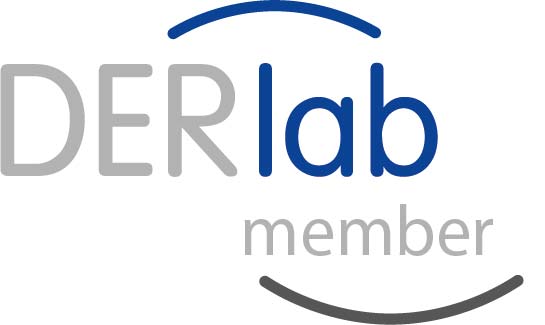| Country: The Netherlands Website: https://www.tudelft.nl/en/ Get funded free access to this facility via the ERIGrid 2.0 Lab Access Programme. |
Top education and research are at the heart of the oldest and largest technical university in the Netherlands – Delft University of Technology.
Our 8 faculties offer 16 bachelor’s and more than 30 master’s programmes. Our more than 25,000 students and 6,000 employees share a fascination for science, design and technology. Our common mission: impact for a better society. The almost 40 technological and scientific disciplines together with their many specialisms are accommodated within TU Delft’s eight faculties. TU Delft’s many different disciplines are a key factor in the success of its multidisciplinary and interdisciplinary thematic cooperation.
Real-time Digital Simulator Laboratory (RTDS)
The RTDS installation at TU Delft consists of 8 racks with 10 PB5 and 36 3PC cards, capable of simulating grids in 2 µs and 50 µs step size.Additionally the racks have analog/digital I/O, remote I/O, two GTNetx2, and one GTSync card.. The RTDS Simulator allows to test protection and con-trols in real time, where an hour in the real world equals an hour in the simulator. Utilizing modular custom computing hardware and software, simulations performed encompass results from DC up to electromagnetic transients. Inherently, these results include information regarding the system load flow and transient stability, as well as that of harmonics and faster disturbances.
The major applications of the RTDS includes:
- Equipment can be thoroughly test-driven and customized.
- New power system network designs or upgrades can be evaluated and accurately tested.
- Black box real-world equipment (e.g. closed-source controllers) can be tested and integrated in larger test scenarios without having a model.
- Interoperability of multi-vendor installation can be validated.
- Models and real implementations (products) of components can be compared.
- Closed-loop testing of protective relays and control systems.
- Studying general AC system operation including behaviour of generation and transmission systems.
- Investigating dynamic power system equipment interaction.
- Studying interaction between integrated AC/DC systems.
- Integration and operation of distributed generation and renewables.
- Investigation and testing of SMART Grid initiatives including wide area protection and control.
- Testing of control system of converter based equipment.
Electric Sustainable Power Lab
The ESP Lab is a truly unique facility where research on the system integration of new technologies and components in the power system will become reality.
The ESP Lab with its staff and infrastructure will offer high-quality research in:
- Materials development Development of space charge measurement for commercial and non-commercial purposes
- Power electronics & energy storage
- Development of cables for DC transmission System integration of new technologies and components such as solar PV, wind conversion technologies and electric vehicles
- Effect of transients in the power system on components and materials quality
- Stability, Protection, and Control of hybrid AC/DC power system
- High-voltage testing, modelling and validation
- Ancillary services & markets Digital infrastructure
The ESP lab is equipped with additional facilities to enable users working on the system integration at different levels.
| System of Systems | System |
|---|---|
| Simulation and testing of the behaviour of sustainable energy sources and components in large-scale energy networks, and developing and testing network models to simulate the behaviour of different large-scale energy networks linked together. The laboratory has facilities for developing hardware-in-the-loop simulations – Real-Time Digital Simulators (RTDS). | DC lab facility for obtaining knowledge and experience from HVDC systems for wind energy integration to MVDC (micro) grids with integrated renewable energy sources and energy storage. The DC lab is equipped with DC testing source up to 600 kV. Additionally a DC power grid of 1 kV for system test is available. Multi-terminal DC grid with OPAL RT allows design of control and testing of MTDC network. Development of DC technologies and systems for Smart Cities and electric transport. PV lab facility for the development and optimisation of intelligent small-scale PV systems. |
| Component | Materials |
|---|---|
| Testing lab facility for measuring energy conversion in PV devices, power electronic and converters. Lab equipment includes advanced monitoring system for PV modules, high-end oscilloscopes for ultra-fast measurements and recording purposes. Smart and reliable sensors are developed as well. To fulfil the requirements of future super grids the laboratory is equipped with one of the largest impulse generators in Europe. The maximum reachable lightning impulse voltage will be 4.2 MV. AC real tests simulations are supplied from transformer cascade which can create voltage up to 1.5 MV. | Unique equipment for dielectric spectroscopy, space charge measurements, partial discharge analysis and fast transient measurements to promote synergy between materials research and system design. Sensitive and accurate measurements in an extra high-voltage environment. Advanced material characterization techniques for characterizing novel materials for photovoltaic and photo-electro-chemical devices for conversion of solar energy into electricity or solar fuels, respectively. |
Static Equipment:
- Lightning impulse generator 4 MV
- AC transformer cascade 1.5 MV
Mobile Equipment:
- HVDC sources up to 600 kV
- HV amplifiers up to 30 kV
- Partial discharge measuring systems
- SF6 handling equipment Dielectric spectroscopy
- Solar simulators: Oriel, Pasan, Wacom
- Large area solar simulator (Eternal Sun) Spectral response set-ups
- Laser cutter and PV-module laminator
- Fourier Transform, Photocurrent Spectroscopy (FTPS), Raman Spectroscopy, Spectrospic Ellipsometry (SE)
- Li-ion battery storage and measurement facility
- Climate, humidity chambers and heat-plates for broad conditioned testing
- High precision measuring equipment
- Hardware-in-the-loop (HIL) with OPAL RT digital simulator
- Power-, EMC-, and Network-Analysers Surface mount device and vapour phase soldering equipment Real time digital simulators (RTDS)
- Controller- Hardware-in-the-loop simulations
- Amplifiers for grid-protection testing
- Power-HIL amplifiers up to 30 kW
- Cyber-physical co-simulation for Supervisory
- Control and Data Acquisition (SCADA) system and phasor measurement unit (PMU)
Testing Services
- High voltage testing of electrical components up to 800kV
- Partial discharge measurement according to IEC 60270

